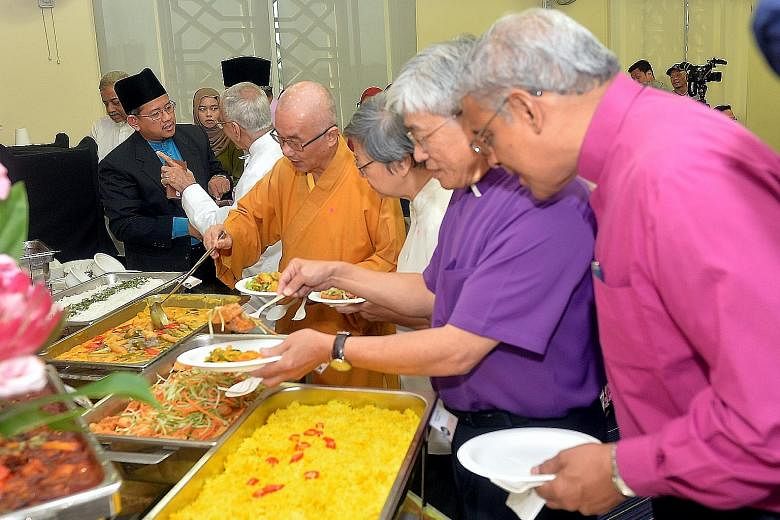Social media is a battleground where extremist groups can bait individuals with false narratives and recruit them for violent ends.
Singapore's highest Islamic authority, Mufti Fatris Bakaram, who was speaking at an inter-faith Eid celebratory event yesterday, said that to combat this, there needs to be continuous education on the right teachings of Islam. The youth, in particular, must have proper channels to direct their religious queries and seek guidance.
Dr Fatris said the Islamic Religious Council of Singapore (Muis) is working with young, media-savvy asatizah (religious teachers) to reach out to youth over the Internet.
"Social media is now fast becoming a site of contestation, particularly for the spread of radical views and recruitment of individuals towards violent ends. The recent cases of self-radicalised individuals underscore this challenge," he added.
Last month, a 22-year-old Singaporean woman working as an infant care assistant was detained under the Internal Security Act for radicalism. In 2015, two Singaporean youths, aged 17 and 19, who were radicalised by the Islamic State in Iraq and Syria, were arrested.
Dr Fatris said Muis is working hard with various agencies and partners to deal with radicalism, and measures have been implemented to ensure that the Muslim community remains on top of the challenge.
Among them is a mandatory Asatizah Recognition Scheme to allow only accredited religious teachers to offer religious instruction.
Dr Fatris said it is critical to ensure that young people have a sense of belonging and allow them to channel their energy into meaningful social activities.
He reiterated the importance for inter-faith leaders to stand in solidarity against the threat of terrorism.
He also expressed his gratitude to the leaders he met yesterday, and also thanked the National Council of Churches for its recent letter to assure Muslims that the recent arrests of radicalised individuals will not lead to the blaming of the entire Muslim population.
Mr Ashraf Anwar, 24, an Islamic teacher or ustaz, uses social media sites Facebook and Instagram to reach out to young Muslims. "We need to provide alternative views... to disseminate an understanding of moderate Islam," he said.


